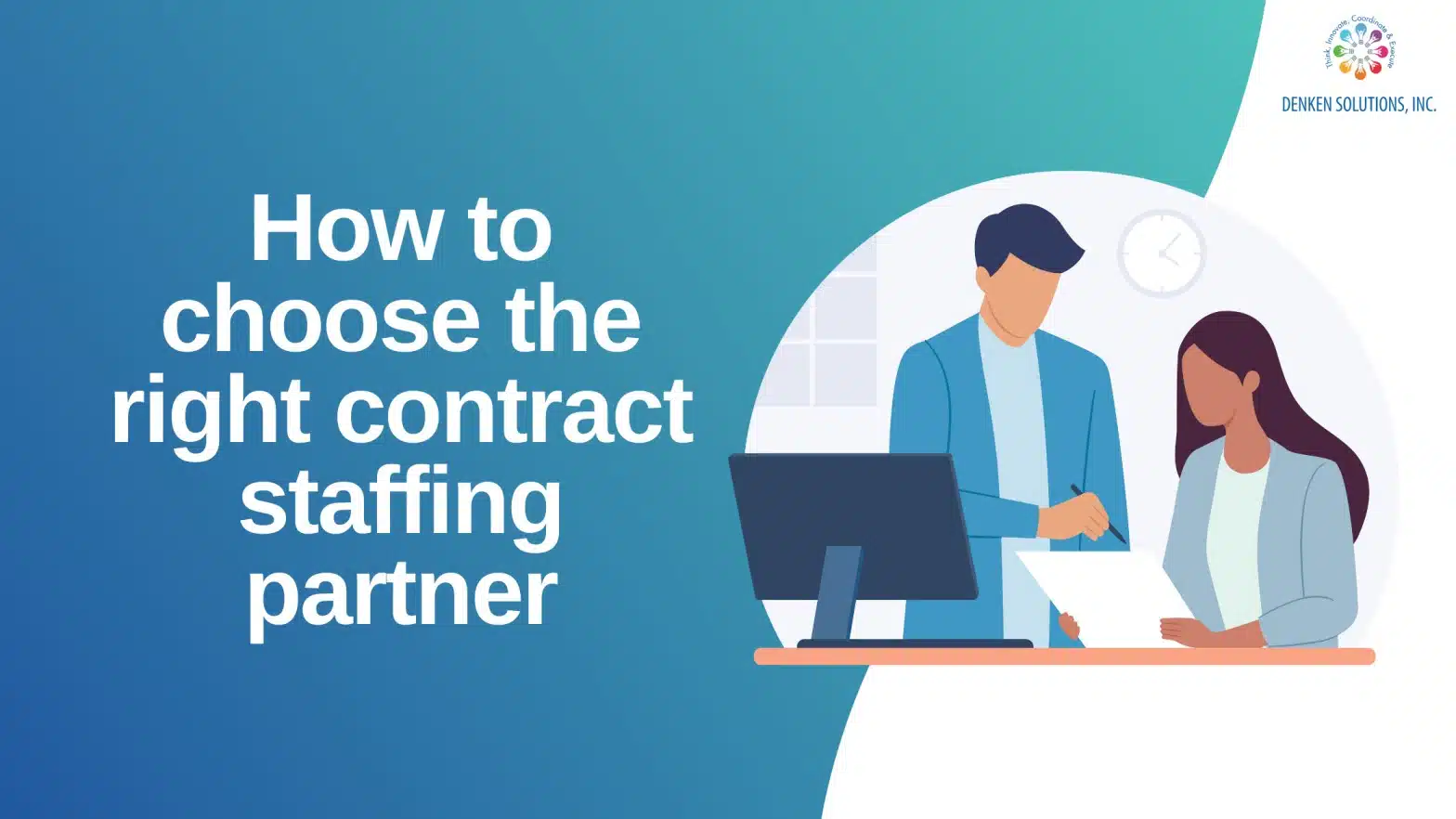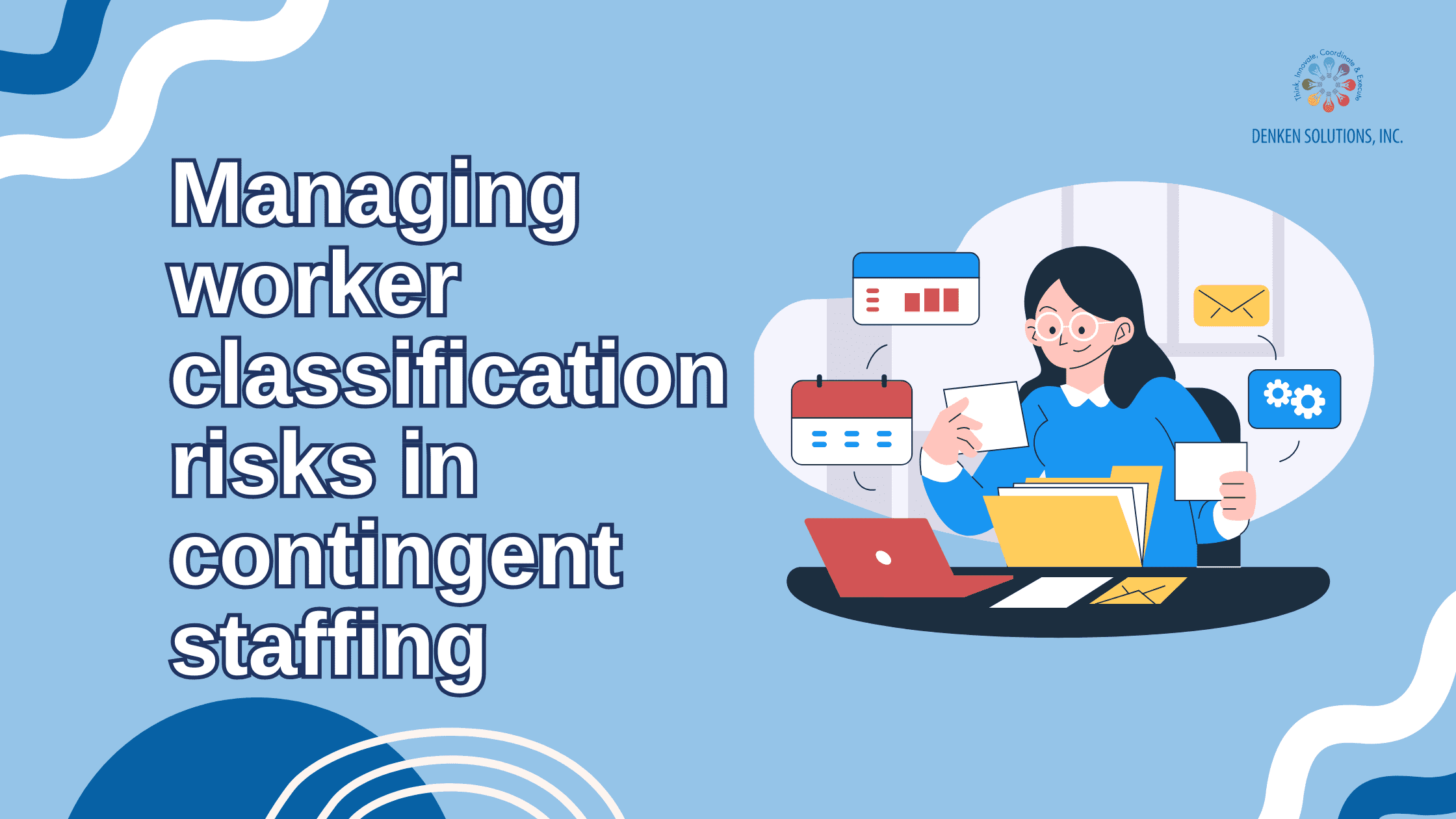Today’s dynamic business environment is driven by macroeconomic factors and technological innovation, where contingent workers play a crucial role. With unique skills and competencies, they are found to become qualified for a project’s success. However, retaining valuable contingent workers for upcoming projects during peak season contingent staffing comes with certain challenges.
With the gig economy’s rising popularity, employers need to become aware of employee retention strategies for efficient management of of their contingent workforce compliance. This article outlines the best practices for motivating contingent workers and boosting their engagement.
Contingent workforce management best practices for employee retention
Below are some of the best employee retention strategies that can assist employers in enhancing contingent worker engagement in their businesses. Executing the contingent workforce management best practices will ensure you attract the best talent and keep them increasingly motivated and engaged.
- Transparency in communication
Communication is the key to developing a successful working relationship with contingent workers. Employers should invest in communication channels, technologies, and virtual tools to ensure transparency in communication for their remote contingent staff. Consistent updates on project goals, timelines, milestones, expected KPIs, and all other factors need to be communicated on priority on a regular basis.
Besides providing clarity to contingent workers regarding their objectives and tasks, you must always be ready to listen to their issues and resolve their queries. A proactive and open communication approach is always advantageous in motivating contingent workers and enhancing their engagement.
- Competitive compensation and benefits
Unlike full-time employees, contingent workers usually do not receive perks and benefits from employers. This is one of the reasons why many contingent workers feel demotivated at work. With the major transposition in the work culture and the elevation of contingent workforce trends, it becomes essential for employers to offer attractive salary packages to employees.
Employers should also provide specialized bonuses or incentives based on the performance of contingent workers, just like they do for permanent employees. They can offer them perks and benefits such as healthcare plans, retirement plans, discount coupons, membership vouchers, shopping vouchers, and many more.
Related read: The Hidden Benefits of a Career in Contingent Work
- Sense of belonging
Instead of excluding your contingent workers from internal team conversations or company-related discussions, you must encourage their participation to foster a sense of belonging. For retaining the best talent, you should implement an open communication policy and ponder upon team-building activities for both contractual and full-time workers.
You should also invite contingent workers to team meetings, gatherings, training sessions, and more occasions where they can connect with the existing workforce. One of the best ways to offer inclusiveness and a sense of connection to contingent workers is to assign them mentors and buddies from full-time teams to assist in projects and to understand the organization’s business.
- Opportunities for skill development
Employers need to invest in professional development programs such as project-based training sessions, skill development workshops, certifications, and more innovative opportunities. Contingent workers get the desired motivation when their employer demonstrates a commitment to their career advancement beyond project requirements. Mentorship sessions between supervisors and contractual staff can also increase employee morale, leading to a rise in contingent worker engagement.
- Recognition and appreciation
Rewards and recognition are great motivators for employees, whether contractual or full-time. You should acknowledge contingent workers’ valuable contributions through verbal praise, emails, awards, incentives, performance bonuses, etc., and highlight their achievements publicly to affirm their commitment and importance in the organization. Such acts of recognition, appreciation, and rewards are instrumental in enhancing contingent workers’ engagement and may lead to their redeployment into new or permanent roles.
- Establish long-term relationships
Considering the work history, work ethics, productivity, and skill sets, you should continue offering repeated assignments to contingent workers. By developing long-term contracts with reliable contingent workers, you can build a talent pipeline of workers for your upcoming projects. Consequently, this strategy will lead to fostering mutually beneficial partnerships.
Why should you follow employee retention strategies for your contingent workforce?
A contingent workforce has become prevalent in modern business and retaining the best talent has many advantages. Let’s dig deeper into the benefits of utilizing employee retention strategies for contingent workers.
- Boost in workforce continuity and productivity
Developing ways to nourish strong and prolonged relationships with skilled contingent workers will ensure continuity in the workforce. This will lead to consistency in project execution and increased productivity levels. By engaging with long-term contingent talents, you can save a good deal of time and money when hiring and training new talents. Enhanced workforce continuity will allow projects to go live smoothly and meet deadlines efficiently.
- Cost savings
Higher turnover rates will result in increased recruitment process costs for companies. Frequent turnover results in hidden expenses like advertising, screening, and onboarding expenses. Retaining the competitive talent pool eliminates businesses’ recurring costs, thereby optimizing the workforce budget.
3. Connect with specialized skills and diverse expertise
Contingent workers have got specialized skills and plenty of experience, providing businesses with proper grounds for mbracing innovative thoughts and perspectives. Employers can efficiently utilize their unique skills to modify and empower existing teams and drive knowledge transfer within the organization.
4. Increased engagement and satisfaction
Employees feel valued, recognized, and well-motivated when their employers take the right initiatives to appreciate and retain them. Hence, investment in employee retention strategies will surely cultivate a positive work environment and enhance overall project success.
Conclusion
In conclusion, the contingent workforce represents a valuable asset for every business in the agile landscape. Attracting and retaining highly skilled contingent workers requires meticulous implementation of the above-mentioned employee retention strategies. Focus on proactive and effective strategies to ensure you remain equipped with top-notch talent for your business growth. Are you curious about how you can leverage such valuable resources for your project implementation? Then consider Denken Solutions, a progressive staffing solutions services in the USA with the widest talent pool for competitive skills and innovative technologies.
Partner with us, and give us the responsibility of helping you win!



